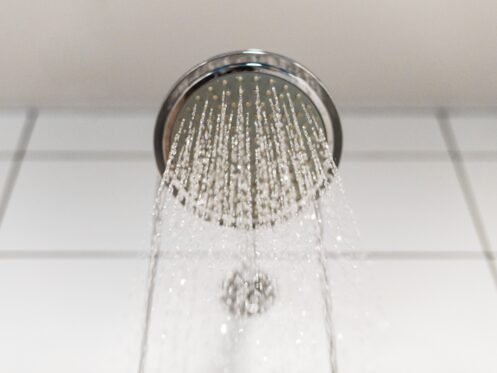When your home experiences low water pressure, it can impact everything from washing your dishes to taking a shower. Low water pressure might feel like a minor inconvenience, but it can also be symptomatic of more serious problems deeper in your plumbing system. Whether your situation involves a gradual decline or a sudden drop in pressure, getting to the root of the matter is essential to restore water flow to an optimal level. Here are six common reasons why your home might have low water pressure right now.
1. Clogged Pipes or Fixtures
Clogged fixtures and pipes are common causes behind low water pressure. Corrosion, mineral buildup, and debris can build up over time inside pipes, faucets, showerheads, and other water outlets. If your house has hard water coming in, this is even more likely. Older fixtures might not have great efficiency in keeping appropriate water pressure, and pipes can have restricted water flow because of what’s accumulating inside them. Warning signs that you might need to consult a plumber include water pressure dropping noticeably at a particular fixture, water taking longer than normal to drain, and rusty or discolored water.
2. Leaks
Plumbing system leaks can drop your water pressure. Water that gets out through faulty joints or cracks is water that doesn’t get to your faucets and taps. Finding the source of a leak can be hard without a professional plumber since leaks can happen in the hidden areas of your home just as much as the visible ones. Warning signs of a leak include persistent drops in water pressure at one or multiple fixtures, a sudden rise in your water bill when your usage hasn’t increased, and unexplained water spots or dampness on floors, ceilings, and walls.
3. Faulty Pressure Regulator
Your home’s pressure regulator is a dedicated valve that manages the pressure of water coming into the residence. When this device malfunctions, water pressure either goes up or down. A faulty regulator can get worn down over time or clog up with debris; either situation creates inconsistent water flow. Take notice when the water pressure changes in every fixture in your home, and listen for strange noises from your pipes, including whistling or banging.
4. Corroded Pipes
Metal pipes can corrode from the inside out over time, especially if they’re made from galvanized steel. Older homes or residences that have gone a long time without plumbing updates are more susceptible to this. Rust particles or flakes in your water, discolored water, water that tastes metallic, or water pressure that gradually lowers over time are all potential warning signs of corroded pipes with increasingly restricted water flow that reduces pressure.
5. Municipal Issues
There are times when low water pressure might not be the result of anything happening on your property but instead due to the municipal supply. Times of high demand, maintenance work, and broken water mains can all make water pressure fluctuate in your area. Check local government resources for news of what’s going on, or ask neighbors if they’re also having issues. Situations such as these usually show up suddenly and get better by themselves in a few hours or days.
6. Partially Blocked or Closed Valves
Valves control how water flows through your home’s areas. If any valve is partially blocked or closed, the restricted water flow results in low pressure. Valves might be accidentally adjusted during repair work or routine maintenance. If water pressure is consistently lagging at one fixture or part of your home, especially after recent plumbing work, then this might be the culprit.
Contact Professional Plumbers for Persistent Problems
Low water pressure can occur for many reasons. Some culprits might be inside your home, but others might lurk underground or exist at the municipal level. Since it’s physically difficult to see inside your home’s pipes, you need to consult professionals who are trained and equipped to diagnose these issues and repair them. Once they do their work, your home’s water pressure will be restored, and the plumbing system will operate smoothly.
If you need professional plumbing service in Covina and the surrounding communities, then Drain Doctor Plumbing & Rooter is the one to call. Our drain cleaning options include Nu Flow and hydro jetting, and sewer services we offer include camera inspection, drain line installation, drain pipe lining, and trenchless sewer repair.
Contact Drain Doctor Plumbing & Rooter for all your home’s drain and sewer services!



